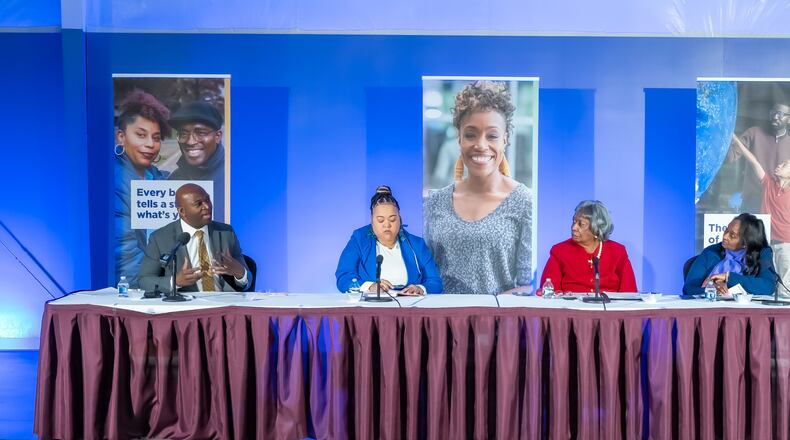Decades later, the descendants of Black people harmed by medical research in the past say they are still dealing with the impact of those transgressions, but hope discussing what took place can begin a new phase for Black healthcare.
Health and research leaders from the National Institutes of Health are meeting today in Tuskegee, Alabama to hold discussions with those descendants. Tuskegee was the location of the infamous U.S. Public Health Service Syphilis Study — a 40-year study from 1942-1972 that included 623 Black men, it left nearly 400 with untreated syphilis, even after penicillin became the standard treatment for the disease in 1947.
A descendant of a man used in that study and of Henrietta Lacks, Lillie Tyson Head and Veronica Robinson, told the stories of their relatives, why their stories matter and how being a descendant governs their lives.
In 2015, the NIH began an ongoing project known as “All of Us” designed to enlist underrepresented communities to contribute their own medical, health and genetic information to a research database. The more diverse data can be used for investigating diseases and treatments, potentially resolving long-standing inequities in research that exclude groups and contribute to medical distrust.
All of Us Chief Engagement Officer Dr. Karriem Watson said Thursday evening, “We have to acknowledge that there’s a historical context in which we do this work. Bringing people together to talk about the importance of diverse participation in clinical trials is so important, but we have to acknowledge why some communities don’t participate.”
The cases of Henrietta Lacks and the U.S. Public Health Service Syphilis Study participants are oftentimes referenced during discussions about the Black community’s distrust of the health care system.
Henrietta Lacks was a Black woman with cervical cancer whose cells were unknowingly taken, used and distributed by Johns Hopkins University for medical research in 1951. Lack’s cells, commonly known as “HeLa” cells, contributed to scientific breakthroughs, including the study of the human genome, testing of the effects of radiation and the development of polio and COVID-19 vaccines.
For years, pseudonyms like Helen Lane and Helen Larsen were used to conceal the true origin of “HeLa” cells. Her name became known in the 1970s when family members were asked for blood samples for research.
The great-granddaughter of Lacks, Veronica Robinson, says that her great-grandmother’s story has led her to advocate for her family and underrepresented communities. She recalled her efforts to reduce vaccine hesitancy during the pandemic.
“I influence policy change and I bridge the gap between science and community,” Robinson said. “Right now, building trust has been very crucial to the point where it can be detrimental to people’s lives. If we don’t begin to build trust, if we keep sweeping history under the rug, we can never move forward.”
Lillie Tyson Head’s father, Freddie Lee Tyson, was a participant in the deceptive U.S. Public Health Service Syphilis study that resulted in the deaths of some of the men, including their wives and kids.
Tyson Head is the president of the Voices for Our Fathers Legacy Foundation, an organization founded by descendants of men used in the study.
“If we as Black and brown people want to change the narrative of disparities in health and the racial system that has caused a lot of pain and injustice, we need to start having this conversation,” said Tyson Head. “If you’re not at the table, you’re on the menu.”
Watson said he hopes the Tuskegee gathering can help the All of Us program advance and put concepts into action by “moving from promise to progress.”
“We’ve promised a lot about what clinical research can do and about what the importance of research is, but we want to begin to advance that work,” Watson said. “We need to increase the research pipeline to ensure that there’s researchers that are asking the questions that reflect the diversity of the community.”
For more information, including how to join “All of Us,” visit https://allofus.nih.gov/.
The Atlanta Journal-Constitution and Report for America are partnering to add more journalists to cover topics important to our community. Please help us fund this important work at ajc.com/give
About the Author
The Latest
Featured



